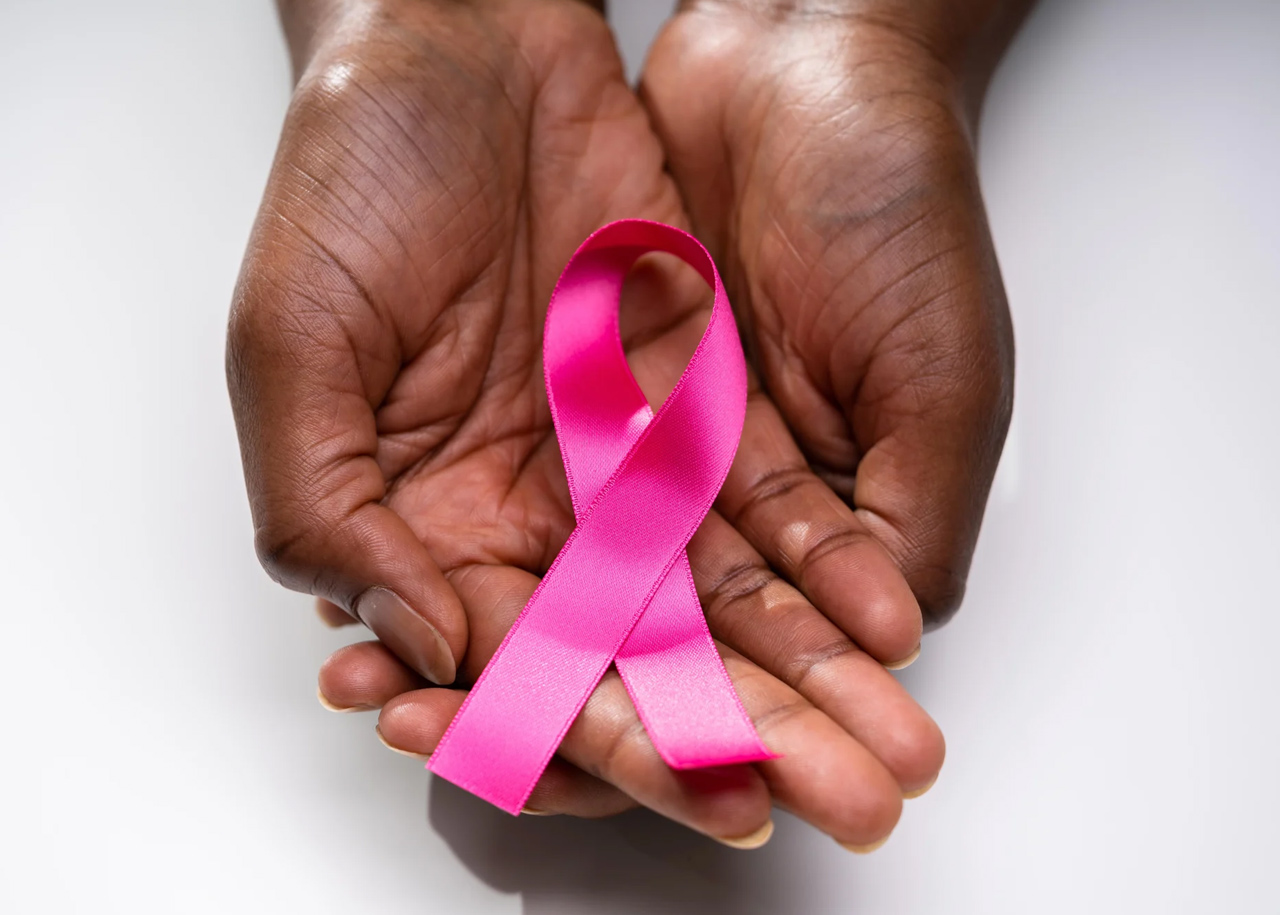Supporting Loved Ones: How Friends and Family Can Help Breast Cancer Survivors Introduction: Support from…

Navigating Breast Cancer as a Young Adult
What You Need to Know
A breast cancer diagnosis is challenging at any age, but for young adults, it presents unique obstacles that are often unexpected and difficult to navigate. While breast cancer is typically associated with older women, an increasing number of young adults—those under 40—are facing this life-altering disease. This demographic faces distinct challenges, including fertility concerns, career disruptions, and the emotional burden of being diagnosed at a time when they are building their future. This blog post will explore “Navigating Breast Cancer as a Young Adult: What You Need to Know,” offering insights, advice, and resources for those who find themselves grappling with this diagnosis at a young age.
The Unique Challenges of Breast Cancer in Young Adults
Breast cancer in young adults is often more aggressive, requiring prompt and intensive treatment. The diagnosis can come as a shock, disrupting plans and dreams for the future. Here are some of the unique challenges that young adults may face:
- Fertility Concerns: One of the most pressing concerns for young adults diagnosed with breast cancer is the potential impact on fertility. Many treatments, such as chemotherapy and hormone therapy, can affect reproductive health. For those who have not yet started or completed their families, this can be a significant source of stress and anxiety.
- Career Disruptions: Young adults are often in the early stages of their careers, working hard to establish themselves professionally. A breast cancer diagnosis can lead to extended time off work, reduced income, and concerns about job security. Balancing treatment with work responsibilities adds an additional layer of complexity.
- Social Isolation: Being diagnosed with breast cancer at a young age can be an isolating experience. Friends and peers may not fully understand the gravity of the situation, and finding others who can relate to your experience can be difficult. This isolation can exacerbate feelings of loneliness and emotional distress.
- Financial Strain: The cost of cancer treatment can be overwhelming, especially for young adults who may not have substantial savings or comprehensive insurance coverage. The financial burden can lead to difficult decisions about treatment options and create additional stress during an already challenging time.
- Body Image and Self-Esteem: Young adults are often in a stage of life where body image and self-esteem play a significant role in their identity. The physical changes that accompany breast cancer treatment, such as hair loss, weight changes, and mastectomy, can have a profound impact on self-perception and confidence.
- Relationship Dynamics: A breast cancer diagnosis can strain relationships with partners, family, and friends. Young adults may worry about how their diagnosis will affect their current relationships or future dating prospects. Communication and emotional support become crucial as they navigate these changes.
Navigating Breast Cancer as a Young Adult: What You Need to Know is that these challenges are real, but they can be managed with the right support, resources, and mindset.
The Importance of Early Detection and Aggressive Treatment
For young adults, early detection of breast cancer is crucial. Breast cancer in younger women tends to be more aggressive and may not be detected as early as it is in older women due to the lack of routine screenings like mammograms. Therefore, understanding the importance of early detection and seeking aggressive treatment when necessary is vital.
- Know Your Risk Factors: While most young adults are not routinely screened for breast cancer, those with a family history of the disease or other risk factors should be particularly vigilant. Discuss your risk factors with your healthcare provider, and consider genetic testing if you have a strong family history of breast or ovarian cancer.
- Understand the Symptoms: Breast cancer symptoms in young adults can be similar to those in older women but are often dismissed as benign. Common symptoms include a lump in the breast, changes in breast size or shape, nipple discharge, and skin changes. If you notice any of these signs, consult a healthcare provider immediately.
- Advocate for Yourself: Young adults may face barriers when seeking a diagnosis, as breast cancer is often considered unlikely in this age group. If you feel that something is wrong, trust your instincts and advocate for further testing. Early detection can significantly improve your prognosis.
- Consider Aggressive Treatment: Given the aggressive nature of breast cancer in young adults, treatment may need to be more intensive. This could include a combination of surgery, chemotherapy, radiation, and targeted therapies. Discuss all options with your oncologist and consider seeking a second opinion if needed.
Navigating Breast Cancer as a Young Adult: What You Need to Know is that early detection and proactive treatment are key to improving outcomes and achieving long-term survival.
Fertility Preservation: Planning for the Future
One of the most significant concerns for young adults diagnosed with breast cancer is the potential impact on fertility. Many breast cancer treatments, particularly chemotherapy and hormone therapy, can harm fertility or lead to early menopause. However, there are options available for preserving fertility and planning for the future.
- Discuss Fertility Preservation Early: If you are concerned about your ability to have children after treatment, discuss fertility preservation with your oncologist as soon as possible. The earlier these conversations happen, the more options you may have available.
- Fertility Preservation Options: Several options are available for preserving fertility before starting treatment. These include egg or embryo freezing, ovarian tissue freezing, and ovarian suppression during chemotherapy. Your healthcare team can help you understand the pros and cons of each option and determine what is best for you.
- Balancing Treatment and Fertility: In some cases, fertility preservation may require delaying the start of cancer treatment. It’s essential to weigh the risks and benefits of this delay with your oncologist. A fertility specialist can work with your oncology team to create a plan that balances your cancer treatment with your desire to preserve fertility.
- Alternative Paths to Parenthood: If fertility preservation is not possible or not chosen, there are still many ways to build a family in the future. Adoption, surrogacy, and donor eggs are all options to consider. It’s important to remember that there is no one “right” way to become a parent, and many paths can lead to a fulfilling family life.
Navigating Breast Cancer as a Young Adult: What You Need to Know is that while fertility preservation may be a complex and emotional decision, planning for the future can provide a sense of control and hope during a challenging time.
Emotional and Mental Health Support
The emotional toll of a breast cancer diagnosis can be especially challenging for young adults. In addition to the physical impact of the disease, young adults may experience feelings of shock, anger, sadness, and fear. Addressing emotional and mental health is a critical component of navigating breast cancer as a young adult.
- Seek Professional Support: Therapy or counseling can be incredibly beneficial for young adults dealing with a breast cancer diagnosis. A mental health professional can help you process your emotions, develop coping strategies, and navigate the complexities of your situation. Consider finding a therapist who specializes in working with cancer patients or young adults.
- Connect with Peers: Finding others who understand what you’re going through can be a lifeline. Support groups, both in-person and online, offer a space to share experiences, exchange advice, and build a sense of community. Organizations like Young Survival Coalition and Stupid Cancer provide resources and connections specifically for young adults with cancer.
- Practice Self-Care: Self-care is essential for managing stress and maintaining emotional well-being. This can include activities that bring you joy, relaxation techniques like meditation or deep breathing, and ensuring you get enough rest and nutrition. Self-care is not a luxury; it’s a necessity when navigating breast cancer.
- Communicate with Loved Ones: Open communication with family and friends is crucial. Let them know how you’re feeling and what kind of support you need. It’s okay to set boundaries and ask for help when you need it. Your loved ones want to support you, but they may not know how unless you tell them.
- Consider Your Mental Health After Treatment: The end of treatment can be a time of mixed emotions. While it’s a relief to finish treatment, it can also bring anxiety about the future and uncertainty about what comes next. Continued therapy, support groups, and self-care practices can help you navigate this transition.
Navigating Breast Cancer as a Young Adult: What You Need to Know is that prioritizing your mental and emotional health is as important as addressing your physical health. You don’t have to go through this journey alone, and support is available to help you cope with the challenges ahead.
Navigating Career and Financial Challenges
A breast cancer diagnosis can have significant implications for your career and finances, especially as a young adult who may still be establishing financial stability. Here’s how to manage these challenges:
- Know Your Rights at Work: It’s essential to understand your rights under the law when navigating breast cancer as a young adult. The Family and Medical Leave Act (FMLA) allows eligible employees to take unpaid, job-protected leave for medical reasons. Additionally, the Americans with Disabilities Act (ADA) may provide protection against discrimination and require employers to make reasonable accommodations for your condition.
- Communicate with Your Employer: If you’re comfortable, consider having an open conversation with your employer about your diagnosis and treatment plan. This can help you work together to find a balance between your job and your health needs. Flexibility, such as working from home or adjusting your hours, can make it easier to manage treatment and work responsibilities.
- Explore Financial Assistance Programs: Cancer treatment is expensive, and the financial burden can be overwhelming. There are numerous organizations and programs designed to help cancer patients with medical bills, living expenses, and other financial needs. Look into resources like CancerCare, The Pink Fund, and local charities that offer financial assistance.
- Budget and Plan for the Future: Creating a budget can help you manage your finances during and after treatment. Take into account potential changes in income, medical expenses, and other costs. Financial planning can help reduce stress and provide a sense of control over your situation.
- Consider Long-Term Career Goals: After treatment, you may need to reevaluate your career goals. Some young adults find that their experience with cancer leads them to pursue new opportunities, whether it’s changing careers, going back to school, or starting a business. It’s important to give yourself time to heal and reflect on what you want for your future.
Navigating Breast Cancer as a Young Adult: What You Need to Know is that while financial and career challenges can be daunting, there are resources and strategies available to help you manage these aspects of your life during and after treatment.
Conclusion: Moving Forward with Strength and Resilience
A breast cancer diagnosis at a young age is a life-changing event that brings unique challenges. However, with the right support, information, and mindset, you can navigate this journey with strength and resilience. From addressing fertility concerns and emotional health to managing career and financial challenges, every aspect of your life will be impacted—but none of these challenges are insurmountable.
Navigating Breast Cancer as a Young Adult: What You Need to Know is that while this journey is difficult, it can also be a time of growth, self-discovery, and empowerment. By taking proactive steps, seeking support, and advocating for yourself, you can emerge from this experience with a renewed sense of purpose and hope for the future. Remember, you are not alone, and there are resources, communities, and healthcare providers dedicated to helping you through every step of your journey.



